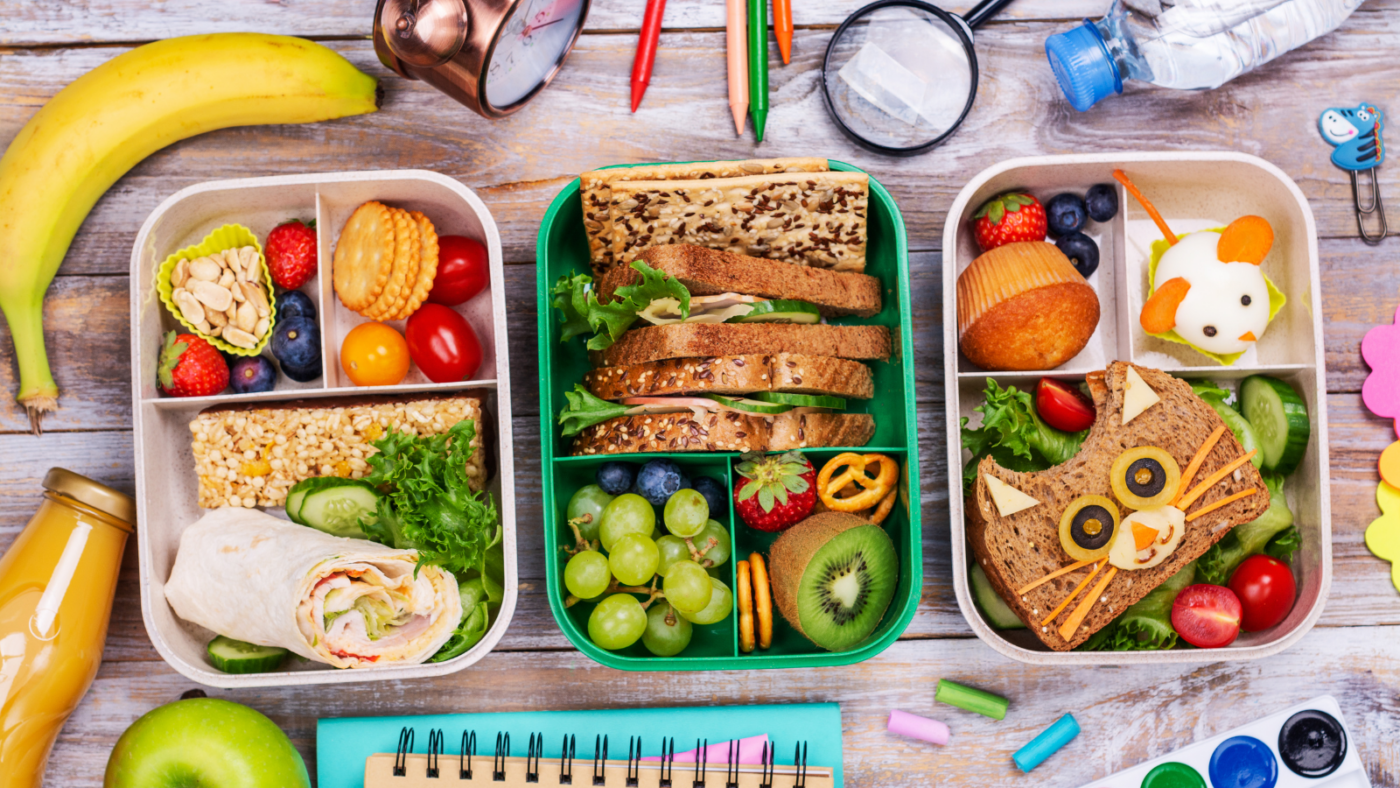Advice For Parents, Advice For Schools
Encouraging a Sustainable, Proactive Approach to Healthy Eating Within Your School
With our Cookathon fast approaching, Education Adviser and Health for Life lead, Helen Grundy, shares her top tips for engaging and sustaining a healthy approach to food and nutrition within your school…
Do you often have difficult conversations with parents about the suitability of their child’s packed lunch or snacks?
And do you ever hear said parent lament the fact that their child ‘won’t eat’ healthier and less sugar-filled options?
It’s easy to keep our educationalist teacher hat on in this situation in our desire for the best life-outcomes for our pupils, but do we keep our parent hat on too, and step into the true difficulty that the battle of eating healthily can create in a fast-paced life?
Do you want to help your children have a greater desire for, and be intrigued by, healthier eating options?
In this blog post, I’ve compiled a cornucopia of ideas that are sure to make a difference…
Many of these can involve parents too, through engaging and up-skilling them, and offering new ideas to change their minds that healthy options can be as tasty and desirable as the ultra-processed and high in sugar options.
1. Make it, Eat it!
After years of managing a cooking and gardening programme in primary schools, I can promise you that the more children that are involved in the cooking (and even growing) of their food, the more likely they are to proudly eat it.
Even as an adult, if you grow your own tomatoes and go and pick one to put in a salad, you’ll eat it rather than dismiss it, as we have come to do with easy come and often bland supermarket produce.
I have seen parents’ jaws drop as their child asks for seconds of a vegetable soup they’ve made, exclaiming ‘they’ll only eat nuggets at home!’ Busted! Children will tell you they’ll only eat nuggets, but don’t take their word for it!
2. Offer Tasting Opportunities
Do children know that they don’t like olives stuffed with garlic if they’ve never tried them?! It can be too easy to jump to a conclusion.
Build food tasting sessions into geography when learning about the Greeks, or even language lessons.
When studying Spanish food vocabulary, you could try ‘pimientos’ or Manchego ‘queso’ (cheese) – yum!
And talking of cheese, this can be an expensive risk for parents. Is it worth the gamble of spending £4 on an unusual cheese their child wants to try, with the danger that they may take one small bite and not like it? Supermarkets will often offer cheese samples to a school for children to taste and evaluate.
Creative teachers could build an opportunity like this into many lessons; maths, geography, PSHE for example.
Another way to explore tasting unusual food is through the science aspects which explore plants.
One school I know had an ‘unusual vegetables’ bed. A group of children had never seen an artichoke so they grew some, cared for them (and they were stunning and well loved) and then cooked and sampled.
What a gorgeous school experience for curious little minds; your school could do the same.
3. Teach Children about Mindful Eating
It’s too easy to eat whilst watching TV or playing a game; you look down at your plate and it’s gone without you tasting a morsel. Thoughts of ‘What can I eat next?’ then creep in.
Avoid labelling foods as ‘bad’, which induces guilt and an unhealthy cycle. Whatever the choices, encourage children to be aware of what goes into their mouths and its texture, smell and feel. You will more than likely find that some of those healthy snacks are actually as mouth satisfying as the chocolate.
Mindfulness is a crucial part of eating, which we can overlook if we are doing other things.
4. Learn the Science
A gorgeous resource I’ve come across is a set of ‘Top Trumps’ style cards with nutritional information on our ‘phyto friends’ from ‘Candodo’ (and yes, the dodo is on purpose). Candodo teach about gut bacteria and are passionate about changing your gut bacteria to enable a healthier body.
Chloe from Candodo tells me that, of the two types of gut bacteria, the good and the not so good, whichever we feed shouts the loudest. So, eat sugary and fatty foods and that is what you’ll crave more of – that’s what your gut will shout for.
But in just three days your gut bacteria is replaced – try cutting out biscuits for three days and snack on carrots or your favourite healthier option and see what happens to your cravings. I tried it with interesting results.
Visit Candodo.life if you want to know more about their school and parent resources.
5. Don’t Forget the Basics
There was much consternation some years ago when Delia Smith wrote ‘How to Cook’ which included instruction on how to boil an egg. Much talk was made of how dreadful the younger generation were that they couldn’t perform this simple task.
I have to admit that I had been brought up in a household where mum did all of the cooking and if I wanted a boiled egg then she made me one. I had a first-class degree but no clue how to boil an egg and I’d conveniently avoided eating them in student days.
Both in school and at home, a valuable lesson is teaching children the skills of cooking: How to crack an egg; the difference between slicing a slippery onion; a knobbly potato and a slimy avocado with a massive stone in the centre; how to beat, whisk or fold.
I can guarantee when a child has grated their own carrot, they will want to eat it.
6. Be Accessible
Let younger ones snip herbs with scissors and add these to your Great Fire of London bread instead of adding salt.
You can even make bread in a bag for children with sensory dislikes so that they don’t have to touch it at all when kneading.
Some children with ASD can display ritualistic behaviours around foods touching each other or handling certain textures. Make this an accepted part of their learning process by holding raw chicken with a fork to slice it for example or wearing latex gloves.
7. Create a home cookbook.
I have tried to get my daughter to cook 4 or 5 basic dishes with me a few times and record them in her own notebook. This is a starting point for life and personalised to the recipes that she enjoys and has confidence in preparing.
Schools often collate the recipes that their children have cooked into an attractive book, either for school reference or to sell at the school fayre.
8. Hygiene!
Anything that is cooked by a child’s hands should be expected to be safely eaten by the adults around too.
None of the ‘oh thank you, I’ll save that for later…’ excuses. Teach about food contamination, hair tied back, clean fingernails etc.
The pride a child sees in their teachers or parents enjoying their food is immense and will surely encourage an interest in healthier eating habits and in owning their food choices generally.
Summary
Engaging children in the process and teaching children the necessary skills, rather than preaching about ‘good’ and ‘bad’ foods is truly the key to giving them a lifelong interest in and ownership of food – something that may be one of the most important things you could ever teach.
Encourage Healthy Lifestyles via our annual Cookathon
Is your school looking to develop a practical, proactive approach to healthy eating?
Our annual Cookathon can help you to do just that.
In partnership with Mondelez International and formed as part of our Health for Life programme, the cookathon invites you to share in our love of healthy eating by cooking along with a celebrity chef and fellow schools/settings in your area, on 28th February.
Find out moreAbout the Author
 Helen Grundy - Adviser, Services For Education
Helen Grundy - Adviser, Services For Education
Helen's journey began in 1998 when she proudly graduated with a first-class honour’s degree in English and Education Studies. Her time studying in Amsterdam at the Hogeschool Holland added a TESOL element to her degree, opening her eyes to international approaches to education.
Her teaching career in Staffordshire saw her excel in various roles, from subject leadership to SENCo and SLT. Helen's passion and dedication led her to become a Leading Maths Teacher, supporting colleagues and ultimately transitioning into consultancy and advisory roles.
Joining Services For Education in 2015 as an Education Adviser, Helen's initial focus on Maths Advising quickly expanded to include managing the highly successful Health for Life in Primary Schools programme and overseeing ECT Induction. Her expertise is also sought after for delivering parts of the nationally recognised NPQ suite of qualifications.
Helen's journey is not just a career, but a testament to her unwavering commitment to education and the betterment of schools and students.


 Lucie Welch – Adviser, Services For Education
Lucie Welch – Adviser, Services For Education Jo Perrin - Adviser, Services For Education
Jo Perrin - Adviser, Services For Education
 Marsha
Marsha 


